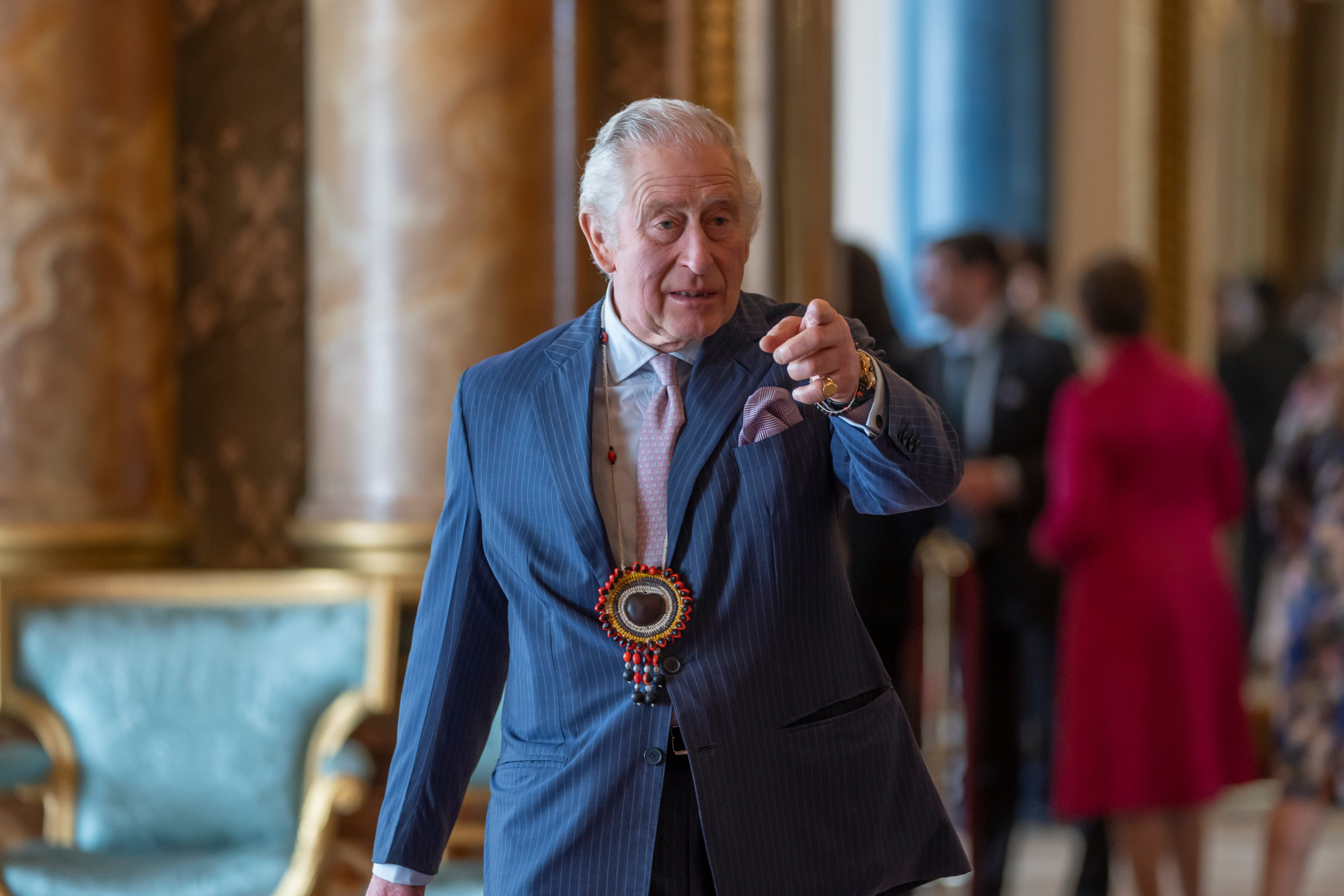Anthem for Charles III’s coronation written by Lloyd Webber
Andrew Lloyd Webber, the English composer who created the scores for blockbuster musicals such as “Cats,’’ “The Phantom of the Opera’’ and “Evita,’’ has written the anthem for King Charles III’s coronation, adapting a piece of church music that encourages singers to make a “joyful noise.”

Your support helps us to tell the story
From reproductive rights to climate change to Big Tech, The Independent is on the ground when the story is developing. Whether it's investigating the financials of Elon Musk's pro-Trump PAC or producing our latest documentary, 'The A Word', which shines a light on the American women fighting for reproductive rights, we know how important it is to parse out the facts from the messaging.
At such a critical moment in US history, we need reporters on the ground. Your donation allows us to keep sending journalists to speak to both sides of the story.
The Independent is trusted by Americans across the entire political spectrum. And unlike many other quality news outlets, we choose not to lock Americans out of our reporting and analysis with paywalls. We believe quality journalism should be available to everyone, paid for by those who can afford it.
Your support makes all the difference.Andrew Lloyd Webber, the English composer who created the scores for blockbuster musicals such as “Cats,’’ “The Phantom of the Opera’’ and “Evita,’’ has written the anthem for King Charles III’s coronation, adapting a piece of church music that encourages singers to make a “joyful noise.”
The work by Webber is one of a dozen new pieces Charles commissioned for the grand occasion taking place May 6 at Westminster Abbey. It includes words adapted from Psalm 98 and is scored specifically for the abbey’s choir and organ.
“I hope my anthem reflects this joyful occasion,” Webber said in a statement distributed by Buckingham Palace.
The program for the king's coronation ceremony includes older music and new compositions as the palace seeks to blend traditional and modern elements that reflect the realities of modern Britain. New pieces were composed by artists with roots in all four of the United Kingdom’s constituent nations, as well as in the Commonwealth and foreign countries that have sent so many people to its shores.
The service will include works by William Byrd (1543–1623), George Frideric Handel (1685–1759), Edward Elgar (1857–1934), Henry Walford Davies (1869–1941), William Walton (1902–1983), Hubert Parry (1848–1918) and Ralph Vaughan Williams (1872–1958), whose music has featured in previous coronations, along with a piece from the contemporary Welsh composer Karl Jenkins.
There will also be new works by Sarah Class, Nigel Hess, Paul Mealor, Tarik O’Regan, Roxanna Panufnik, Shirley J. Thompson, Judith Weir, Roderick Williams and Debbie Wiseman.
“The decision to combine old and new reflects the cultural breadth of the age in which we live,’’ said Andrew Nethsingha, the organist and master of choristers at Westminster Abbey.
“Coronations have taken place in Westminster Abbey since 1066. It has been a privilege to collaborate with his majesty in choosing fine musicians and accessible, communicative music for this great occasion,” Nethsingha said.
In all, six orchestral commissions, five choral commissions and one organ commission — spanning the classical, sacred, film, television and musical theater genres — were created for the coronation.
The program will also include personal touches, including a musical tribute to Charles’ late father, Prince Philip, who was born a Greek prince. The new monarch requested Greek Orthodox music, which will be performed by the Byzantine Chant Ensemble.
Though specifics on some of the material are being kept under wraps, one hymn will definitely be part of the service: Handel’s “Zadok the Priest.”
The hymn, with its robust chorus of “God Save the King,” has been played at every coronation since it was commissioned for the coronation of King George II in 1727.
Subscribe to Independent Premium to bookmark this article
Want to bookmark your favourite articles and stories to read or reference later? Start your Independent Premium subscription today.